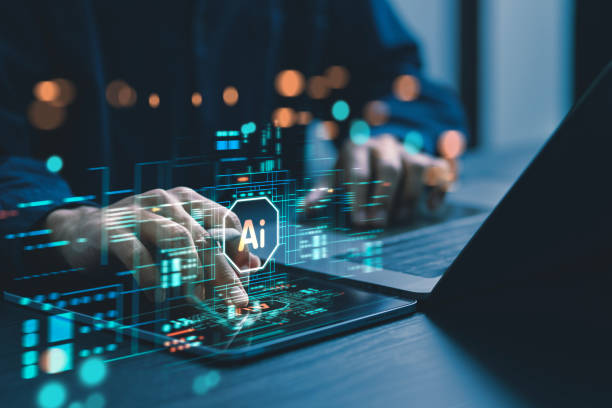In the 21st century, the rapid advancement of Artificial Intelligence (AI) and automation has reshaped the way we live, work, and interact with the world around us. From smart homes to autonomous vehicles, AI and automation are no longer futuristic concepts but integral parts of our daily routines. This article explores how these technologies have permeated various aspects of our lives, offering convenience, efficiency, and new challenges.
What Is AI and Automation, and How Do They Work Together?
Artificial Intelligence refers to the simulation of human intelligence in machines that are programmed to think, learn, and make decisions. Automation, on the other hand, involves the use of technology to perform tasks with minimal human intervention. When combined, AI and automation create systems that can not only execute tasks but also adapt and improve over time based on data and experience.
For example, a smart thermostat uses AI to learn your daily schedule and preferences, automatically adjusting the temperature to optimize comfort and energy efficiency. This synergy between AI and automation is what makes these technologies so powerful and transformative.
How Has AI and Automation Impacted Our Homes?
The concept of the “smart home” has become a reality thanks to AI and automation. Devices like Amazon’s Alexa, Google Home, and Apple’s Siri have turned our homes into interconnected ecosystems where we can control lighting, security, entertainment, and even appliances with simple voice commands.
Smart Assistants: Your Personal Home Manager
Smart assistants like Alexa and Google Assistant have become ubiquitous in many households. These AI-powered devices can perform a wide range of tasks, from setting reminders and playing music to controlling other smart devices in your home. They use natural language processing (NLP) to understand and respond to your commands, making them incredibly user-friendly.
Home Security: Peace of Mind Through Automation
AI-driven security systems have revolutionized home safety. Smart cameras equipped with facial recognition can distinguish between family members, friends, and strangers, sending alerts only when necessary. Automated door locks allow you to control access to your home remotely, and smart sensors can detect unusual activity, such as a window being opened or movement in restricted areas.
Energy Efficiency: Saving Money and the Planet
Smart thermostats like Nest and Ecobee use AI to learn your habits and adjust the temperature accordingly, reducing energy consumption and lowering utility bills. Similarly, smart lighting systems can automatically turn off lights in unoccupied rooms, further contributing to energy efficiency.
How Has AI and Automation Changed the Way We Work?
The workplace has undergone significant changes due to AI and automation. These technologies have streamlined processes, increased productivity, and opened up new opportunities for innovation.
Automation in Manufacturing: The Rise of Robots
In manufacturing, automation has led to the widespread adoption of robots that can perform repetitive tasks with precision and speed. AI-powered robots can now handle complex tasks such as assembling intricate components, quality control, and even packaging. This has not only increased efficiency but also reduced the risk of workplace injuries.
AI in Data Analysis: Making Sense of Big Data
The ability to analyze vast amounts of data quickly and accurately is one of AI’s greatest strengths. In industries like finance, healthcare, and marketing, AI algorithms can sift through massive datasets to identify patterns, trends, and insights that would be impossible for humans to detect. This has led to more informed decision-making and the development of new products and services.
Remote Work: AI-Powered Collaboration Tools
The COVID-19 pandemic accelerated the shift to remote work, and AI-powered tools have played a crucial role in facilitating this transition. Platforms like Zoom and Microsoft Teams use AI to enhance video conferencing with features like background noise reduction, real-time transcription, and virtual backgrounds. AI-driven project management tools like Trello and Asana help teams stay organized and on track, even when working from different locations.
How Has AI and Automation Transformed Transportation?
Transportation is another area where AI and automation have made significant strides. From self-driving cars to intelligent traffic management systems, these technologies are reshaping how we move from place to place.
Autonomous Vehicles: The Future of Driving
Self-driving cars, powered by AI, are no longer the stuff of science fiction. Companies like Tesla, Waymo, and Uber are developing autonomous vehicles that can navigate roads, avoid obstacles, and make real-time decisions without human intervention. While fully autonomous cars are not yet mainstream, advanced driver-assistance systems (ADAS) like adaptive cruise control and lane-keeping assist are already making driving safer and more convenient.
Smart Traffic Management: Reducing Congestion and Pollution
AI-powered traffic management systems use real-time data from sensors, cameras, and GPS devices to optimize traffic flow and reduce congestion. These systems can adjust traffic signals, reroute vehicles, and even predict and prevent accidents. By reducing traffic jams, smart traffic management also helps lower vehicle emissions, contributing to a cleaner environment.
Ride-Sharing and Navigation: AI at Your Fingertips
Ride-sharing platforms like Uber and Lyft rely on AI algorithms to match drivers with passengers, optimize routes, and calculate fares. Navigation apps like Google Maps and Waze use AI to provide real-time traffic updates, suggest the fastest routes, and even predict travel times based on historical data. These technologies have made getting around easier and more efficient than ever before.
How Has AI and Automation Impacted Healthcare?
The healthcare industry has seen remarkable advancements thanks to AI and automation. These technologies are improving patient care, streamlining administrative tasks, and accelerating medical research.
Diagnostics and Imaging: AI as a Second Opinion
AI algorithms are being used to analyze medical images, such as X-rays, MRIs, and CT scans, with remarkable accuracy. In some cases, AI can detect abnormalities that might be missed by human radiologists. This not only speeds up the diagnostic process but also reduces the likelihood of errors, leading to better patient outcomes.
Personalized Medicine: Tailoring Treatments to Individuals
AI is enabling the development of personalized medicine, where treatments are tailored to an individual’s genetic makeup, lifestyle, and medical history. By analyzing vast amounts of data, AI can identify the most effective treatments for specific patients, reducing the risk of adverse reactions and improving the chances of recovery.
Robotic Surgery: Precision and Minimally Invasive Procedures
Robotic surgery systems, like the da Vinci Surgical System, use AI and automation to assist surgeons in performing complex procedures with greater precision and control. These systems can make smaller incisions, reduce blood loss, and shorten recovery times, leading to better outcomes for patients.
How Has AI and Automation Influenced Education?
Education is another field that has been transformed by AI and automation. These technologies are making learning more personalized, accessible, and efficient.
Personalized Learning: Adapting to Each Student’s Needs
AI-powered educational platforms, such as Khan Academy and Coursera, use adaptive learning algorithms to tailor content to each student’s individual needs and learning pace. This ensures that students receive the right level of challenge and support, leading to better engagement and understanding.
Automated Grading: Saving Time for Educators
AI can automate the grading of assignments and exams, freeing up educators to focus on teaching and mentoring. Automated grading systems can provide instant feedback to students, helping them identify areas for improvement and reinforcing their learning.
Virtual Classrooms: Learning from Anywhere
The rise of virtual classrooms, powered by AI, has made education more accessible to students around the world. Platforms like Zoom and Google Classroom enable real-time interaction between teachers and students, regardless of geographical location. AI-driven tools, such as language translation and transcription, further enhance the learning experience for non-native speakers and students with disabilities.
What Are the Ethical and Social Implications of AI and Automation?
While AI and automation offer numerous benefits, they also raise important ethical and social questions that need to be addressed.
Job Displacement: The Future of Work
One of the most significant concerns surrounding AI and automation is the potential for job displacement. As machines take over repetitive and routine tasks, many workers may find themselves unemployed or needing to acquire new skills. Governments, businesses, and educational institutions must work together to ensure that workers are prepared for the changing job market.
Privacy and Security: Protecting Personal Data
AI systems rely on vast amounts of data to function effectively, raising concerns about privacy and security. As more of our personal information is collected and analyzed, there is a risk of data breaches and misuse. Strong regulations and robust security measures are essential to protect individuals’ privacy and ensure that AI is used responsibly.
Bias and Fairness: Ensuring Equitable Outcomes
AI algorithms are only as good as the data they are trained on, and if that data contains biases, the AI may perpetuate or even exacerbate those biases. This can lead to unfair outcomes in areas like hiring, lending, and law enforcement. It is crucial to develop AI systems that are transparent, accountable, and free from bias.
How Can We Prepare for a Future Shaped by AI and Automation?
As AI and automation continue to evolve, it is essential to prepare for the changes they will bring. This involves not only embracing the benefits of these technologies but also addressing the challenges they present.
Lifelong Learning: Adapting to a Changing World
In a world where technology is constantly advancing, lifelong learning is more important than ever. Workers must be willing to acquire new skills and adapt to new roles as the job market evolves. Educational institutions and employers should provide opportunities for continuous learning and professional development.
Ethical AI Development: Building Trust and Accountability
To ensure that AI is used for the greater good, it is essential to prioritize ethical considerations in its development and deployment. This includes promoting transparency, fairness, and accountability in AI systems, as well as involving diverse stakeholders in the decision-making process.
Collaboration: Working Together for a Better Future
The challenges and opportunities presented by AI and automation require collaboration across sectors and disciplines. Governments, businesses, academia, and civil society must work together to create policies and practices that maximize the benefits of these technologies while minimizing their risks.
Conclusion: Embracing the AI and Automation Revolution
AI and automation are transforming our daily lives in ways that were once unimaginable. From smart homes to autonomous vehicles, these technologies are making our lives more convenient, efficient, and connected. However, they also raise important ethical and social questions that need to be addressed. By embracing the benefits of AI and automation while addressing their challenges, we can create a future that is not only technologically advanced but also equitable and sustainable. The key lies in responsible innovation, lifelong learning, and collaboration across all sectors of society. As we move forward, it is up to us to shape the future of AI and automation in a way that benefits everyone.



